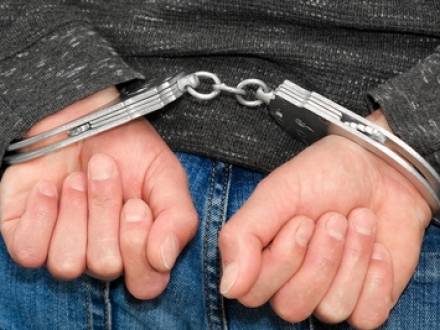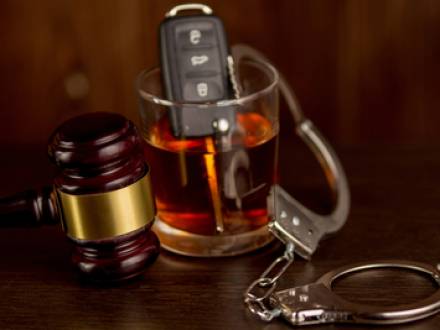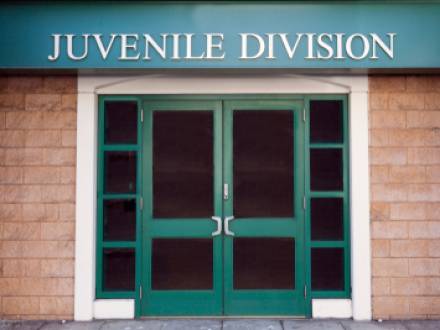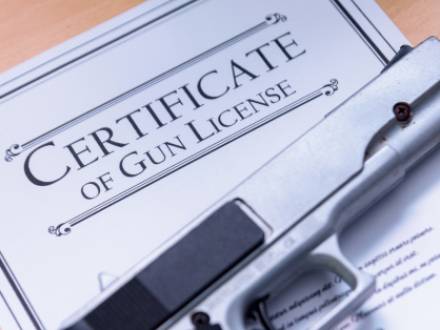1425 McHenry Road, Suite 204, Buffalo Grove, IL 60089
●Free Initial Consultation
Recent Blog Posts
How Long Will a DUI Stay on My Record?
 You might not think that a bad decision you made one night could shape your image for years to come. Unfortunately, this is often the case with driving under the influence (DUI). If you were arrested on DUI charges in Illinois, that information may be accessible to landlords, employers, and anyone else who runs a background check on you. However, you may have options to protect your reputation. An Illinois criminal defense lawyer can explore your options for getting your criminal record sealed or expunged.
You might not think that a bad decision you made one night could shape your image for years to come. Unfortunately, this is often the case with driving under the influence (DUI). If you were arrested on DUI charges in Illinois, that information may be accessible to landlords, employers, and anyone else who runs a background check on you. However, you may have options to protect your reputation. An Illinois criminal defense lawyer can explore your options for getting your criminal record sealed or expunged.
As a former Cook County prosecutor, Attorney Matthew Gebhardt is highly familiar with the legal procedures involved with DUI. At The Law Offices of Matthew R. Gebhardt, P.C., we can advise you of your best course of action based on your specific situation.
The Long-Term Effects of a DUI Case
If you are convicted of DUI in Illinois, the consequences may run deeper than you expect. Even in seemingly minor cases, misdemeanor DUI is still punishable by up to a year in jail, which can impact your reputation in your community.
Can I Be Charged With Domestic Violence Without Physical Evidence?
 An accusation of domestic violence can threaten to ruin your reputation. Worse, you may face a lengthy jail sentence if you are convicted. If you are accused of domestic battery without physical evidence, you should contact a lawyer to figure out your best defense. An Illinois criminal defense attorney can help you contest the allegations, exploring all possible strategies to get the charges against you reduced or dismissed.
An accusation of domestic violence can threaten to ruin your reputation. Worse, you may face a lengthy jail sentence if you are convicted. If you are accused of domestic battery without physical evidence, you should contact a lawyer to figure out your best defense. An Illinois criminal defense attorney can help you contest the allegations, exploring all possible strategies to get the charges against you reduced or dismissed.
Crimes of domestic violence carry a significant stigma. As such, it is in your best interests to seek legal representation as soon as you have been charged with battery against a family or household member. At The Law Offices of Matthew R. Gebhardt, P.C., we have successfully defended clients against domestic battery in the past. Although past cases are no guarantee of future results, you can rest assured that your case will be handled by an experienced professional dedicated to protecting your rights.
How to Get Someone Out of Jail After a DUI
 Getting a phone call from jail can be alarming. If you have found out that someone you care about – your child, your partner, your friend – has been arrested on DUI charges, your first priority might be to get them released. If you have any concerns about bail and bonds, an Illinois criminal defense lawyer can help.
Getting a phone call from jail can be alarming. If you have found out that someone you care about – your child, your partner, your friend – has been arrested on DUI charges, your first priority might be to get them released. If you have any concerns about bail and bonds, an Illinois criminal defense lawyer can help.
At The Law Offices of Matthew R. Gebhardt, P.C., we have years of experience handling DUI cases. We know how intimidating it can be to be detained and held in jail, and we will do everything we can to help. Attorney Matthew Gebhardt is well-versed in traffic law and criminal defense, so you can rest assured that your loved one’s case will be in good hands.
Do You Have to Pay Bail in Illinois?
You may already be familiar with the concept of bail – that is, paying a certain amount of money to get released from jail before your court date. However, you should know that Illinois has done away with cash bail altogether.
Will You Go to Jail for Domestic Violence if Your Wife is Pregnant?
 The state of Illinois treats accusations of domestic violence seriously. If you have been charged with domestic battery, you could be sentenced to prison upon a conviction. If the alleged crime is committed against your pregnant wife, you could face even stricter prosecution. An Illinois criminal defense attorney can represent you in a domestic violence case, giving you a clear idea of what to expect from the legal proceedings.
The state of Illinois treats accusations of domestic violence seriously. If you have been charged with domestic battery, you could be sentenced to prison upon a conviction. If the alleged crime is committed against your pregnant wife, you could face even stricter prosecution. An Illinois criminal defense attorney can represent you in a domestic violence case, giving you a clear idea of what to expect from the legal proceedings.
The crime of domestic battery, especially against a pregnant woman, carries a harsh stigma. As such, you need a qualified attorney to prepare your defense. At The Law Offices of Matthew R. Gebhardt, P.C., we can help you strategize around the possible charges you may face, as Attorney Matthew Gebhardt draws on former experience as a prosecutor to offer clients optimal representation.
Domestic Battery Charges in Illinois
You can be charged with domestic battery for two different reasons:
What Happens to an Illinois Minor Convicted of a Sex Crime?
 It goes without saying that being charged and convicted of a sex crime is incredibly serious. But when the offender is a minor, there may be unique considerations and legal procedures. If your child faces allegations of a sex crime, it is imperative that you work with an Illinois criminal defense lawyer who can represent him or her in court.
It goes without saying that being charged and convicted of a sex crime is incredibly serious. But when the offender is a minor, there may be unique considerations and legal procedures. If your child faces allegations of a sex crime, it is imperative that you work with an Illinois criminal defense lawyer who can represent him or her in court.
At The Law Offices of Matthew R. Gebhardt, P.C., we have over 20 years of proven legal experience in criminal law. Moreover, Attorney Gebhardt has previously served as a Cook County prosecutor, giving him a clear perspective of how sex crimes are handled in court. When you work with our firm, you will receive a zealous defense no matter what you have been accused of.
Minors Must Register as Sex Offenders
If you are convicted of certain sex crimes, you will be placed on a sex offender registry. Information about your conviction will be publicly accessible, and in many cases, registration is for life. Being placed on a sex offender registry can potentially affect where you live and restrict your job opportunities.
What Happens if You Sell a Prescription Drug in Illinois?
 Selling a prescription drug might not seem like a major crime, but in Illinois, it can be charged as a serious criminal offense. If convicted, you could face fines, jail time, and the burden of a permanent criminal record. Fighting a charge of drug distribution requires thorough preparation and a deep knowledge of the law. At The Law Offices of Matthew R. Gebhardt, P.C., our Illinois drug crimes defense attorney can advocate for your rights in court and find strategies for getting the charges reduced or dropped.
Selling a prescription drug might not seem like a major crime, but in Illinois, it can be charged as a serious criminal offense. If convicted, you could face fines, jail time, and the burden of a permanent criminal record. Fighting a charge of drug distribution requires thorough preparation and a deep knowledge of the law. At The Law Offices of Matthew R. Gebhardt, P.C., our Illinois drug crimes defense attorney can advocate for your rights in court and find strategies for getting the charges reduced or dropped.
Drug Schedules
In Illinois, all illegal drugs are classified into categories known as schedules. The most serious drug crimes involve Schedule I drugs like heroin or PCP, which come with felony penalties for possession – let alone selling them. Prescribed medications and drugs are typically characterized within Schedule II through IV since they have accepted medical uses.
Can a Man Go to Jail for Domestic Violence Against Another Man?
 When most of us think of the term "domestic violence," we usually think of a man abusing a woman. While this may be the most common form of domestic violence, it is far from the only form. Abusive relationships are characterized by physical and verbal abuse, excessive control, and intimidation. Abusers often attempt to normalize these behaviors to maintain power in the relationship, but domestic violence can and does happen in gay and lesbian relationships as well as heterosexual relationships where the woman abuses the man.
When most of us think of the term "domestic violence," we usually think of a man abusing a woman. While this may be the most common form of domestic violence, it is far from the only form. Abusive relationships are characterized by physical and verbal abuse, excessive control, and intimidation. Abusers often attempt to normalize these behaviors to maintain power in the relationship, but domestic violence can and does happen in gay and lesbian relationships as well as heterosexual relationships where the woman abuses the man.
Twenty-six percent of gay men have experienced physical violence by an intimate partner. This compares to 29 percent of straight men, so it is nearly as common for a man in a gay relationship to commit domestic violence as it is for a man in a heterosexual relationship. So, the answer to the question of whether a man can go to jail for domestic violence against another man is "absolutely."
How Much Jail Time Does a Felon Get for Having a Gun?
 While there are few state statistics regarding charges for "felon in possession of a firearm," federal statistics show that in 2018, there were 6,719 convictions for this offense. Of those, 97.7 percent were men with an average age of 34. Tennessee, Alabama, and Missouri had the highest rates of felon in possession of firearm charges and convictions.
While there are few state statistics regarding charges for "felon in possession of a firearm," federal statistics show that in 2018, there were 6,719 convictions for this offense. Of those, 97.7 percent were men with an average age of 34. Tennessee, Alabama, and Missouri had the highest rates of felon in possession of firearm charges and convictions.
Illinois has severe penalties in place for a felon in possession of a firearm, charging the criminal offense as either a Class 2, Class 3, or Class X felony, depending on the circumstances. Since each of these offenses can result in significant prison time, it is highly recommended that you speak to a knowledgeable criminal defense attorney. If you have been charged with felon in possession of a firearm, discussing your charges with an experienced Buffalo Grove, IL criminal defense attorney can be beneficial.
Are Domestic Violence and Domestic Battery the Same?
 A recent report from the Illinois Coalition Against Domestic Violence found that domestic violence deaths in Illinois rose by 110 percent in 2023, with 94 incidents of domestic violence that led to 120 deaths. Domestic violence is a broad term that encompasses many different behaviors, while domestic battery is a more specific criminal offense. Both offenses are serious and can lead to harsh penalties.
A recent report from the Illinois Coalition Against Domestic Violence found that domestic violence deaths in Illinois rose by 110 percent in 2023, with 94 incidents of domestic violence that led to 120 deaths. Domestic violence is a broad term that encompasses many different behaviors, while domestic battery is a more specific criminal offense. Both offenses are serious and can lead to harsh penalties.
Certainly, no one is an advocate for domestic violence, but there are instances when the alleged victim may have made up or exaggerated the incident or both parties were equally to blame for the incident. If you are facing charges of domestic violence or domestic battery, you need an experienced Buffalo Grove, IL criminal defense attorney who can build a strong defense on your behalf.
Can You Go to Jail for Having a Gun Without a FOID?
 Individual states may pass their own laws that require permits or licenses to possess or purchase ammunition and firearms. Those living in Illinois must possess a valid Firearm Owner’s Identification card to purchase or own a gun or ammunition. Possession of a weapon without a FOID card can result in weapons charges and serious penalties if convicted. If you have been charged with Possession of a weapon without a FOID card, you should speak to a knowledgeable Barrington, IL criminal defense lawyer.
Individual states may pass their own laws that require permits or licenses to possess or purchase ammunition and firearms. Those living in Illinois must possess a valid Firearm Owner’s Identification card to purchase or own a gun or ammunition. Possession of a weapon without a FOID card can result in weapons charges and serious penalties if convicted. If you have been charged with Possession of a weapon without a FOID card, you should speak to a knowledgeable Barrington, IL criminal defense lawyer.
What You Need to Know About FOID Cards
A person who wants to possess firearms and ammunition lawfully must have a Firearm Owners Identification Card issued by the Illinois State Police. Federal officials, members of a bona fide veteran’s organization, and members of the National Guard or Armed Forces (when engaged in official duties) are exempt from FOID requirements.

















